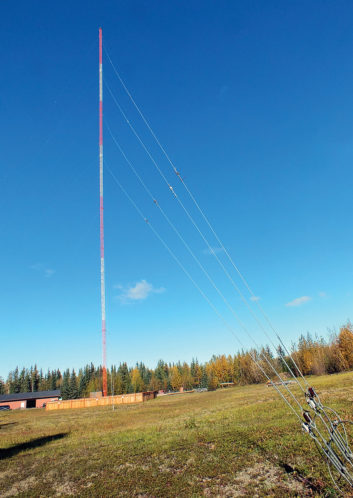
AM radio station owners in the United States are likely to get a rule break next month from the Federal Communications Commission.
Chairman Ajit Pai says the FCC will vote on whether to eliminate the radio duplication rule for AM stations while retaining it for FMs.
“In 1964, the FCC first adopted rules to restrict the duplication of programming on commonly owned broadcast radio stations operating in the same geographic area,” Pai explained in a blog post.
The original reason was to prohibit FM stations in larger cities from duplicating too much programming of a co-owned AM station in the same area, though the cross-service limitation later was dropped.
“We’ve revised [the rule] several times throughout the decades in response to changing market conditions. The current version of the rule was adopted in 1992. Going on three decades later, the rules are overdue for a revision,” Pai wrote.
[Related: “Radio Duplication Rule Up for Discussion”]
Given other recent votes that eased AM rules by this commission, it seems the change is likely to pass.
The rule at present prohibits any commercial AM or FM radio station from devoting “more than 25 percent of the total hours in its average broadcast week to programs that duplicate those of any other station in the same service (AM or FM) which is commonly owned or with which it has a time brokerage agreement if the principal community contours … of the stations overlap and the overlap constitutes more than 50 percent of the total principal community contour service area of either station.”
When the commission proposed the change a few months ago, it noted that the current rule was adopted 27 years ago to foster competition, programming diversity and spectrum efficiency, but that radio has changed significantly since then.
Pai cited “realities of the marketplace” and technical challenges faced by AM broadcasters as reasons to lift the rule from those licensees. “This approach will afford AM broadcast licensees greater flexibility, facilitate all-digital broadcasting by AM stations and ultimately allow stations to improve service to their communities.”
(Pai’s reference to all-digital service on the AM band was brief but suggests that the FCC soon will allow AMs to switch to that mode if they wish, as it has recently proposed.)
Another rule change that looks likely to be adopted at the August commission meeting has to do with broadcast infrastructure and antenna siting.
The rules currently prohibit the grant or renewal of a license for an FM or TV station if the applicant or licensee controls an antenna site that is “peculiarly suitable” for broadcasting in the area and does not make it available for use by other similar licensees.
The FCC noted last fall that when these rules came about around the end of World War II, FM and television were in their infancies, and the infrastructure available to broadcast a signal over the air was sparse.
“Back then,” Pai wrote, “the commission froze the construction of new broadcast facilities in order to preserve equipment and materials (or materiel, if you’re so inclined) for the war effort. At the same time, the commission adopted rules requiring existing broadcast licensees to share their facilities in certain situations. To our knowledge, there has never been a case where all the criteria necessary to invoke the rules were successfully met. And given the significant broadcast infrastructure deployment since then, and the fact most towers are now owned by independent companies that lease tower space to broadcasters, these rules no longer serve any practical purpose.”
Pai said no broadcasters even filed comments about the proposed repeal.
Meanwhile on the C-Band front, Pai said he has circulated final draft procedures for a C-band auction to be held in December, to be voted on next month, and said the commission is moving quickly on this issue.
“If it weren’t for COVID-19, the ‘Top Gun’ sequel would be in theaters right now,” he pointed out. “Nonetheless, you can rest assured that we’ll all be mavericks in three weeks. That’s because when it comes our August meeting’s main attraction, repurposing C-band spectrum for 5G, we feel the need — the need for speed.” And he kindly provided a link for that cultural reference.




